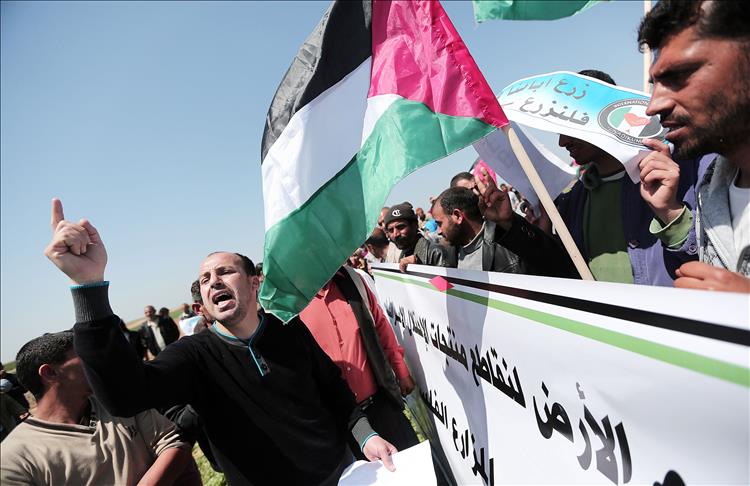
JERUSALEM
For the first time since the establishment of Israel in 1948, the Israeli authorities are considering a plan to build a new "Arab city" to accommodate more than 40,000 people, Israeli daily Harretz has reported.
According to the Israeli paper, the plan will be submitted to the Israeli Regional Council for Planning and Building this week for endorsement.
The proposed Arab city would be located in the western Galilee region in northern Israel.
The plan, Haaretz said, was formulated four years ago and has since been approved by the Israeli Land Authority, the Ministry of Housing and the Ministry of Interior, based on a 2008 government decision.
The new city is expected to be built on an area of 2,700 acres on Tantur Hill near the Arab community of Jdeideh in western Galilee.
The Israeli newspaper said it was not clear when construction would begin.
Israel refers to Palestinians who remained in their homes and cities after the creation of Israel in 1948 as "Israeli Arabs."
According to official figures, the Israeli population is projected to increase by almost 700,000 within the next eight years.
Except for some random Bedouin villages in the Negev region, Israel has not built any city or village for the Arab population in Israel since the country's creation in 1948.
There are around 1.6 million Arabs in Israel, accounting for around 20 percent of the country's population.
Since its establishment, Israel has continued to misappropriate Palestinian land in the West Bank – on which it continues to build numerous Jewish-only settlements – in breach of international law.
The roots of the current conflict date back to 1917, when the British government, in the now-famous "Balfour Declaration," called for "the establishment in Palestine of a national home for the Jewish people."
Jewish immigration rose considerably under the British administration of Palestine, which was consolidated by a League of Nations "mandate" in 1922.
In 1948, with the end of the mandate, a new state – Israel – was declared inside historical Palestine.
As a result, some 700,000 Palestinians fled their homes, or were forcibly expelled, while hundreds of Palestinian villages and cities were razed to the ground by Jewish forces.
The Palestinian diaspora has since become one of the largest in the world. Palestinian refugees are currently spread across Jordan, Lebanon, Syria and other countries, while many have settled in refugee camps in the Palestinian West Bank and Gaza Strip.
On May 15 of each year, Palestinians still commemorate the mass expulsion in 1948, which they refer to as the "Nakba" or "catastrophe."
Israel also occupied East Jerusalem and the West Bank during the 1967 Middle East War. It later annexed the holy city in 1980, claiming it as the capital of the self-proclaimed Jewish state – a move never recognized by the international community.
Palestinians demand the establishment of an independent Palestinian state in the Gaza Strip and West Bank, with East Jerusalem as its capital.
For many Palestinians, the right to return to their homes in historical Palestine – a right enshrined in U.N. General Assembly Resolution 194 – remains a key demand.
Anadolu Agency website contains only a portion of the news stories offered to subscribers in the AA News Broadcasting System (HAS), and in summarized form. Please contact us for subscription options.

